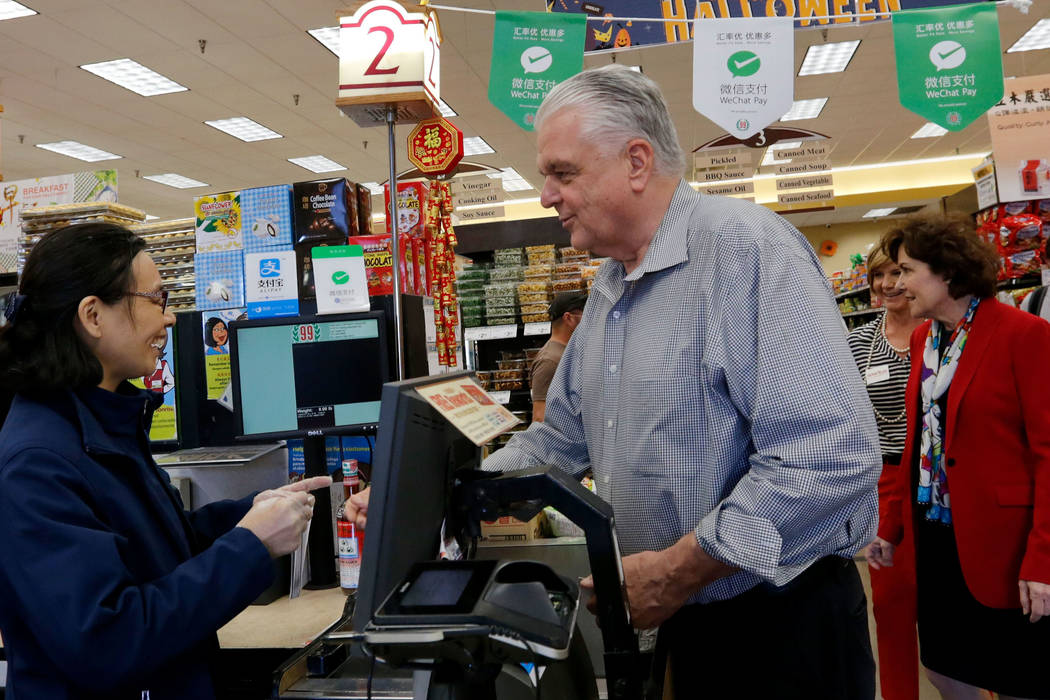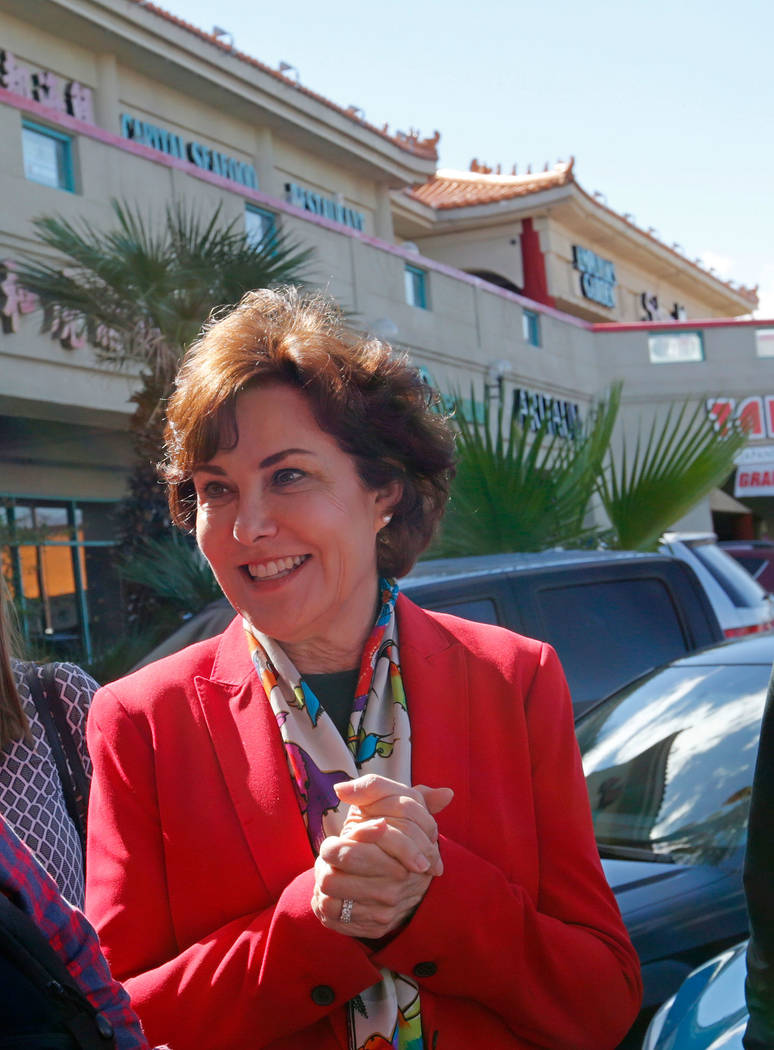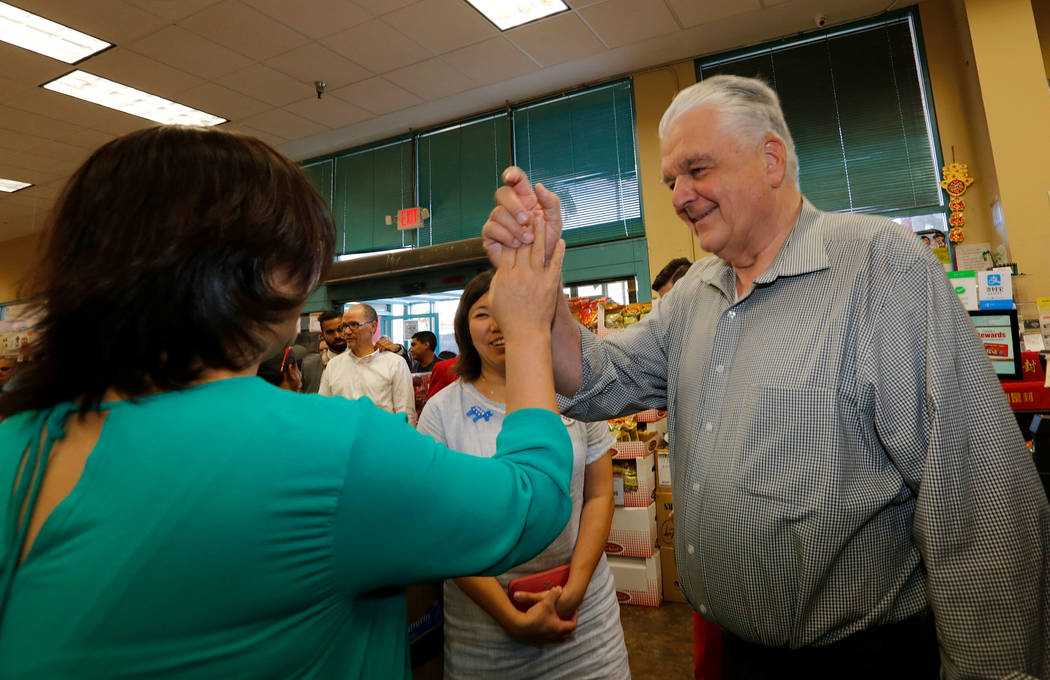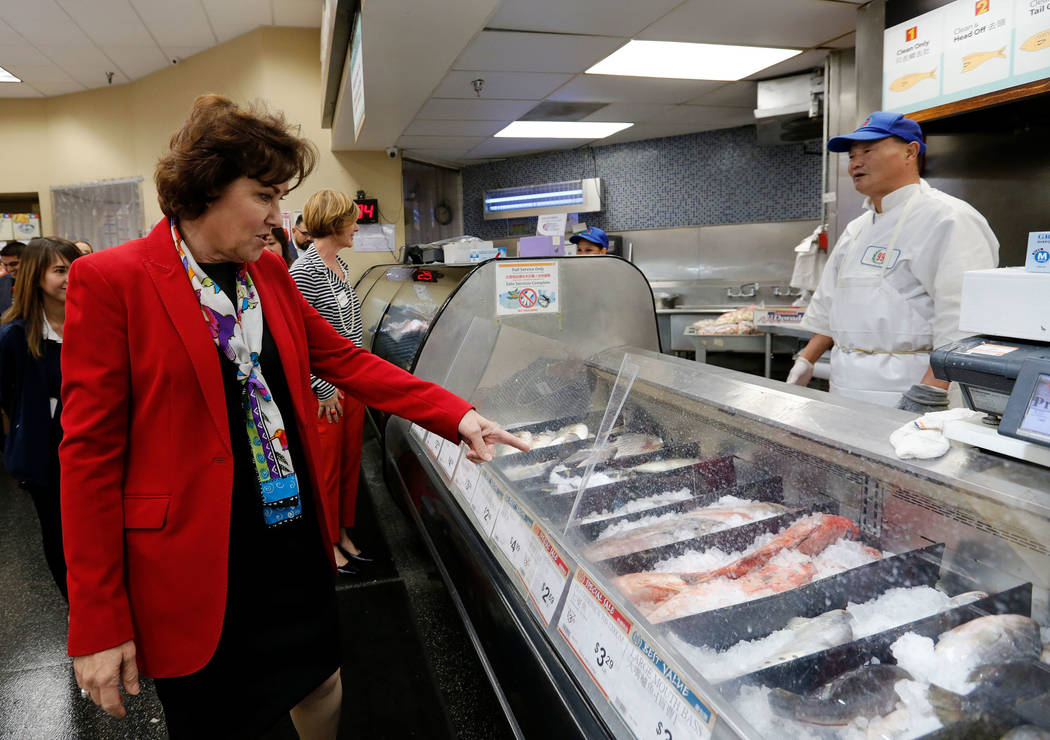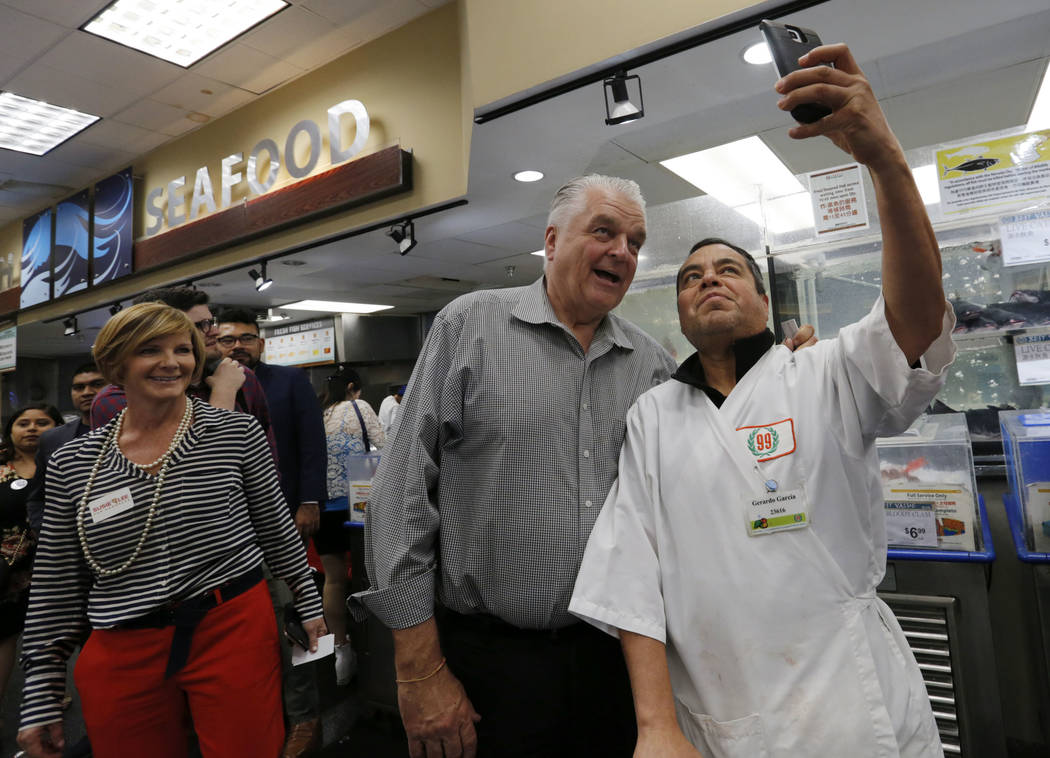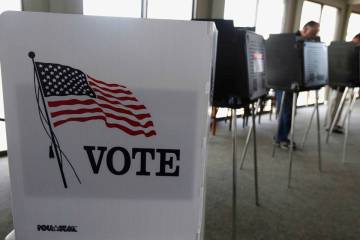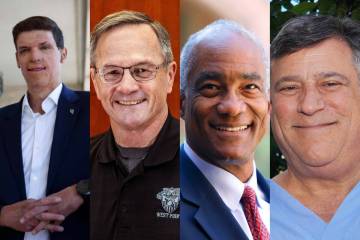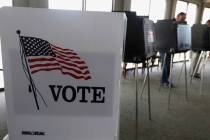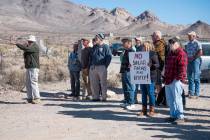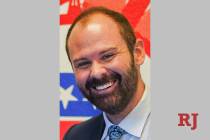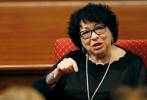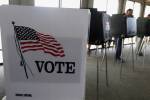Nevada candidates court minority voters ahead of midterm election
Nevada candidates are pulling out all the stops to court minority voters, who could swing the competitive U.S. Senate race next month.
Activist groups including America’s Voice, Mi Familia Vota and For Our Future Nevada have led phone banks and canvassed all year to energize Latino voters. The Latino vote is the Democrats’ most powerful weapon to replace GOP Sen. Dean Heller with Democratic Rep. Jacky Rosen, the only federal candidate to run Spanish-language TV ads.
“Races in Nevada are won by razor-thin margins, and Nevada Democrats are prioritizing outreach to communities of color this year,” said Nevada Democratic Party Executive Director Alana Mounce.
Republicans also have stepped up by hiring a Las Vegas-based director who speaks four languages to build relationships with minority communities. They also said they have hosted hundreds of one-on-one meetings.
“The goal is to identify issues that folks across all backgrounds and communities can coalesce around,” said Keelie Broom, the RNC’s Nevada spokeswoman.
Whether red or blue, political leaders recognize that Asians are a growing voting bloc — and candidates are noticing. In August, top-ticket candidates such as Democratic gubernatorial hopeful Steve Sisolak and congressional candidates Republican Danny Tarkanian, Democrat Susie Lee, Republican Cresent Hardy and Democrat Steven Horsford worked the room at a forum hosted by the Asian Journal Publications.
More than a dozen state and federal candidates pitched themselves at the National Federation of Filipino American Associations’ meet-and-greet last week.
“We’re trying to create a movement to keep people engaged,” said Maggie Tsai, spokeswoman for One APIA Nevada, a nonprofit whose canvassers aim to knock on 25,000 doors by Election Day. “The Asian-American/Pacific Islander vote has been often overlooked. A lot of the older folks are saying this is the first time anyone has asked them about issues like health care, education and immigration.”
But that community isn’t the only one that has felt overlooked.
Despite the fact that black residents make up 9.8 percent of the state population, candidates don’t traditionally prioritize the black vote in Nevada.
Corey Allen, a Democrat and lifelong Nevadan, said he’s voted in every election since he was 18. Yet the 46-year-old truck driver said he hardly sees candidates come to his neighborhood. And if they do show up, Allen said, they disappear after they win the election.
“They need to come to the community and help us with what’s going on. There are problems everywhere: violence, people getting shot,” said Allen, twirling a box of cigarettes between his fingers. “Instead of sending the police here, come down and fix the problems that are causing people to get locked up.”
Rosen is the only candidate to launch an African-American advisory council, a coalition of leaders across the state.
“I will continue to be an active partner with the African-American community in addressing the challenges that face our state, from education and health care to economic inequality and civil rights,” Rosen said.
The Nevada Democratic Party organized a block party in the Historic Westside, a traditionally black community, in addition to hiring Spanish-speaking organizers and a new spokesman to reach Latino, African-American and Asian-American/Pacific Islander media outlets.
Erika Washington, executive director of Make it Work Nevada, a group that organizes women of color around economic, social and reproductive justice issues, said black women play a major role in elections.
Just look at Alabama, Georgia and Virginia, three states where turnout among black women soared and helped drive progressive wins. Black women helped Georgia lawmaker Stacey Abrams win the Democratic primary and get one step closer to becoming the country’s first black female governor.
Black women could be just as influential in Nevada, Washington said.
“I think we can be the deciding factor in any race if the candidates engage with the community,” Washington said. “But I haven’t seen town halls that specifically talk to black women about economic, racial and social justice issues. I think many black voters feel excluded from the larger conversation.”
Census data from July 2017 show that Latinos make up 29 percent of Nevada’s population, followed by 9.8 black or African-American and 9.6 percent Asian, Native Hawaiian or other Pacific Islander. The Voter Participation Center estimated in June that 32 percent of eligible Latinos and 27 percent of African-Americans are not registered to vote. The organization mailed out more than 75,000 voter registration forms.
The stakes couldn’t be higher this year, according to leaders at an Oct. 3 rally organized by progressive groups, including the Culinary Local 226.
“I want to have more representation in Congress,” said Gidget Aranda, an Aria hotel cook and union member since 1995. “The people don’t represent us like they need to. I’m voting because I want my voice to be heard.”
Both Heller and Rosen say they are listening.
Rosen’s deputy campaign manger, Mariela Hernandez, said her campaign is running ads on African-American radio, along with ads targeting Latino and Asian-American/Pacific Island voters.
The Heller campaign launched Juntos con Heller and AAPI for Dean, said spokesman Keith Schipper. The groups include supporters from the Latino and Asian communities.
“With our seven field offices, our campaign is leaving no stone unturned as we head into November so voters know of Dean’s strong record,” Schipper said. “Each and every day, the Heller for Senate campaign is phone-banking, canvassing and speaking to small business owners in communities throughout Nevada,”
Contact Ramona Giwargis at rgiwargis@reviewjournal.com or 702-380-4538. Follow @RamonaGiwargis on Twitter.



